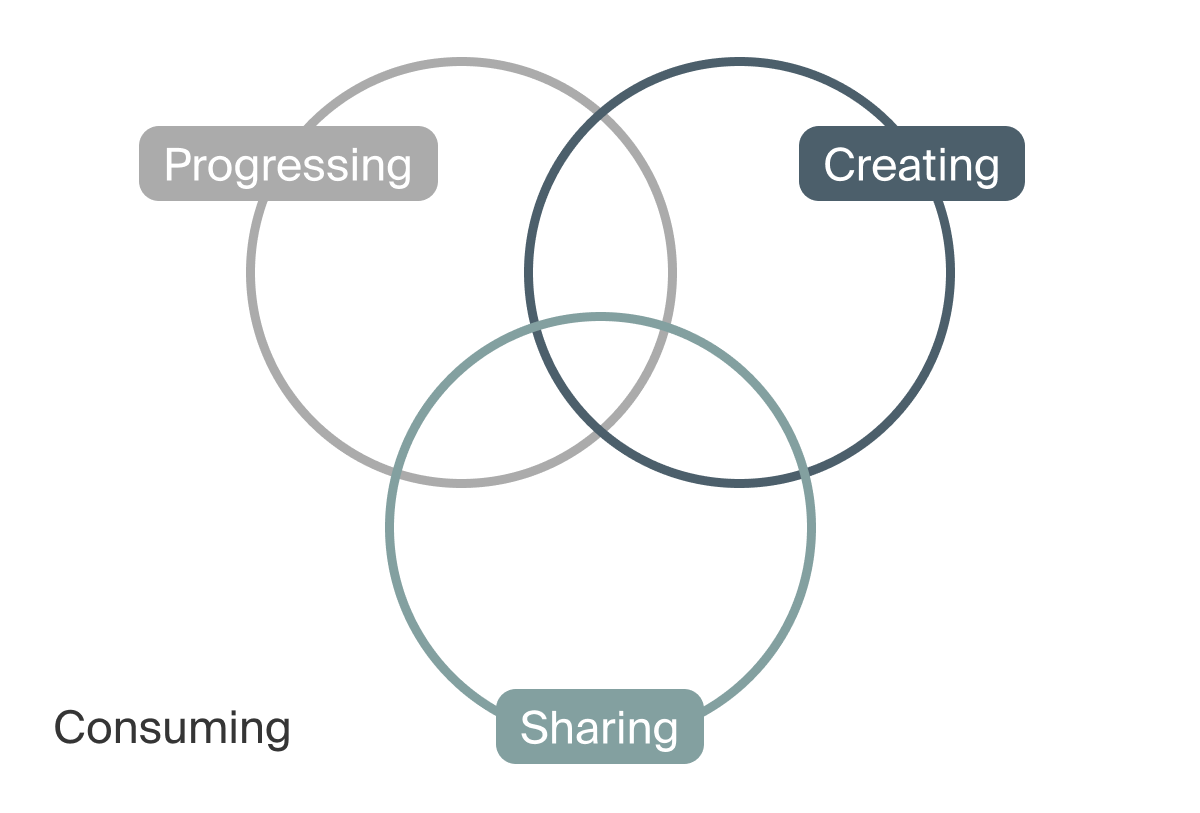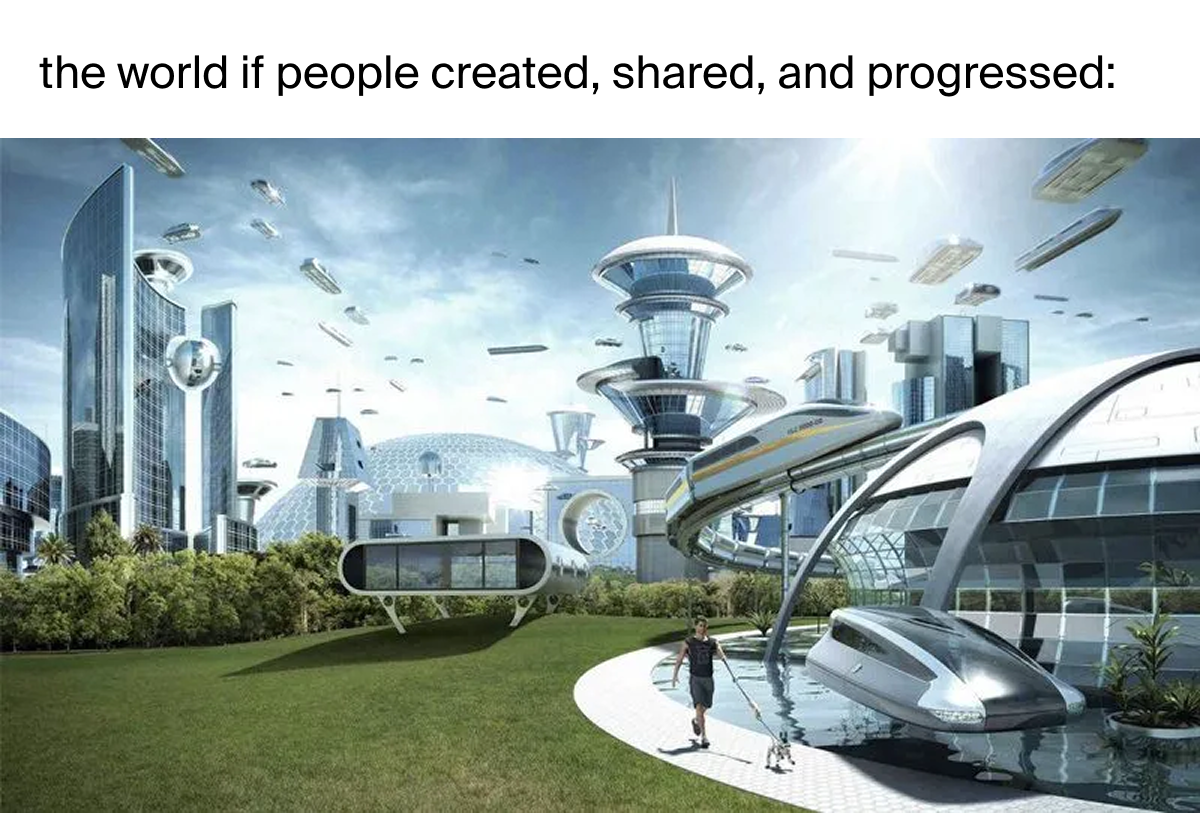What makes a good hobby? It began with a discussion with my other half Karin. I complained about the fact that in the ~2-3 hours people have as spare time each day, a lot of people seemed to just consume stuff – watch reality series, movies, and scroll brainrot content on TikTok. Now, I do these things every now and then. They are relaxing and give you some of that sweet dopamine. But it for sure feels more fulfilling when I do something that involves creating, progressing or sharing. Just one of these is better than consuming, but combining two – or three – makes for an even better hobby. This led us to our framework of what makes a good hobby, a classic Venn diagram of three categories.

Before mapping in (and thus, ranking) some hobbies, I’ll just clarify the categories a bit.
- By creating, we mean creating (duh) something that didn’t exist before. It could be a piece of music, a clay pot, an app or a crusty sourdough loaf, among other things.
- By progressing we mean developing yourself, or improving your skills or knowledge in an area by exposing yourself to something that is outside your comfort zone. It must require some effort. Watching a reality series and learning every detail of the drama by heart doesn’t count – you need to challenge yourself, like you would when taking sailing lessons or reading a book (fiction or nonfiction) in an area that you definitely haven’t explored before.
- By sharing we mean sharing an experience or thing with others. Watching reality with others does count here – a shared experience feels more rewarding than just consuming alone. Cooking a meal for others also fits, and then you are in the intersection of Creating and Sharing.
And, cooking a challenging meal for others fits right in the middle! And if you think about it, isn’t it a nice and wholesome feeling when you’ve done something like that? Pause and think about something you like doing that involves creating something that didn’t exist, is challenging for you, and that you can share with others. Hopefully you get that same nice feeling I get when I think about completing such things.
What doesn’t fit in these intersecting circles, we simply call consuming. A surprising number of things end up here apart from the obvious ones, like reading (books that don’t require you to pause and think, that is) and hiking (you’re consuming the outside, and walking doesn’t really challenge you by default, although it could!). It’s important to say though that not fitting a hobby in a circle does not imply that it’s bad. I’m sure every single human does some consumption that brings joy and fulfillment (eating is an obvious one). But I also believe that hobbies that fit in one or more circles are even more fulfilling and brings more pleasure. Some examples:
- Learning a new language and speaking it with others (progressing and sharing) is better than just doing Duolingo by yourself
- Baking a new, challenging sourdough bread (progressing and creating) is more fulfilling than baking one from a recipe you have done over and over
- Sharing an essay you’ve written with others (sharing and creating) is more fulfilling than just keeping it for yourself
And for the above it’s easy to imagine adding the final circle (except for the language example perhaps – is it more fulfilling to create your own language? Maybe?)
I’m sure people will disagree on the circles I defined. A few people I’ve talked with on this particularly disagree that sharing is important – many see hobbies they do by themselves as their most fulfilling ones (examples: meditating, hiking alone). I can’t argue about their feelings, but I am sure that having a hobby that checks one or more circles is better for society as a whole. Progressing will make you more knowledgeable and eventually bring more advanced things into reality, sharing brings joy to others, and creating brings things into life that didn’t exist before.
So why am I not just doing hobbies that fit in the intersection of all three? I would love to and I aspire to, but the barrier to do them is just bigger. While they are more rewarding in the end, there is also a longer delay to get that reward. But knowing that the rewarding feeling will come helps – and I can now get that knowledge by mapping the hobby using the framework.

Thanks to Karin and Lukas for the discussions that led to this post!
